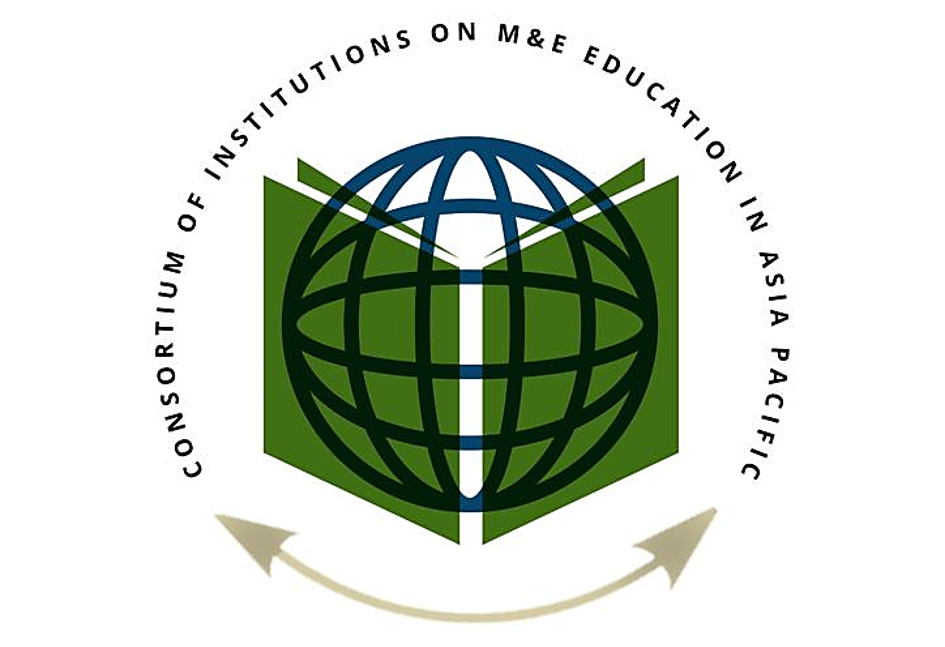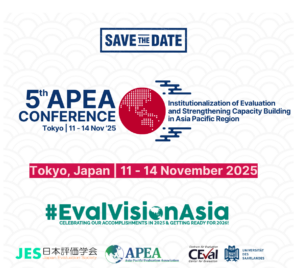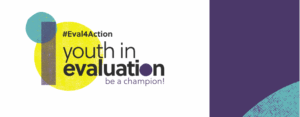Launch supported by CEval/IPDET.
The results of our CEval research project “Evaluation Globe” as well as a specially conducted study program mapping show that the Asia-Pacific region has insufficient regular academic programs in evaluation, both, on postgraduate and undergraduate level. Evaluation knowledge is mainly based on learning on the job and/or through irregular and extremely short-period (1 to 5 days) training programs, webinars, and brown-bag events conducted by VOPEs and training institutions. This absence of academic qualification offers is a clear hindrance in achieving further professionalization of evaluation in the region. There is an obvious need to augment the efforts to make avenues for M&E in the higher education curriculum and an advanced academic recognition and inclusion.
Undoubtedly, there is much ambition for the professionalization of evaluation amongst Asia-Pacific VOPEs. These efforts also include the cooperation with academic institutions offering education and further training in evaluation to prepare an expanded base of youths and professionals with an evaluative attitude by offering structured and formal academic programs. In order to take advantage of synergy effects, it is particularly important to join forces, ergo to form networks, in order to benefit from each other and to be able to present a stronger image to the outside world.
To achieve this goal for its region, the Asia Pacific Evaluation Association (APEA) under the regional evaluation strategy for Asia set up a consortium of academic institutions which currently offer courses and training on M&E related aspects or are looking forward to starting such courses/trainings. This represents a great and also unique characteristic, as there were/are rarely similar networks: a European, albeit one that is no longer active, and a Latin American network.
This effort was supported by the International Program for Development Evaluation Training (IPDET). Central in this context was the expertise of CEval, one of its implementing partners. We not only brought in our immense experience in adult education, especially through our two master’s and continuing education programs in evaluation. We also supported the establishment of a network of institutions offering education and further training in evaluation in Latin America with 15 partner institutions, through our university cooperation with the University of Costa Rica (UCR) and the Pontifical Catholic University of Ecuador (PUCE).
The Asian-Pacific consortium serves as a platform for knowledge sharing and offer cross-learning. More importantly, the consortium also works as a resource group to support academic institutions in setting up formal academic programs and/ or offer standalone courses on various aspects of M&E. It may take up the following tasks:
- Work as an advocacy group to promote the agenda of the inclusion of M&E in mainstream education. The group can work with the government and/or relevant ministries to create buy-in and persuade various institutions to include M&E in undergraduate and master programs.
- Work as a resource group to support academic institutions in initiating academic programs/courses/training on M&E related aspects. The support can be in the form of curriculum development, delivering sessions/courses, helping in arranging internships for the students, etc.
- Organize events, roundtables, knowledge/ process workshops in flagship events to help institutions understand the relevance as well as practical aspects of initiating M&E programs.
- Showcase best practices.
- Development of a draft for regional adapted recommendations/ standards on training and/or (further) education in evaluation and their dissemination.
Countries and institutions included:
- Bhutan (Department of Adult and Higher Education, Ministry of Education)
- India (Institute of Rural Management Anand; Azim Premji University Bangalore; Centre for Development Studies, Thiruvananthapuram)
- Japan (Kwansei Gakuin University; Hiroshima University; Japan Evaluation Society)
- South Korea (Kyung Hee Univiversity)
- Sri Lanka (Asia Pacific Evaluation Association)





